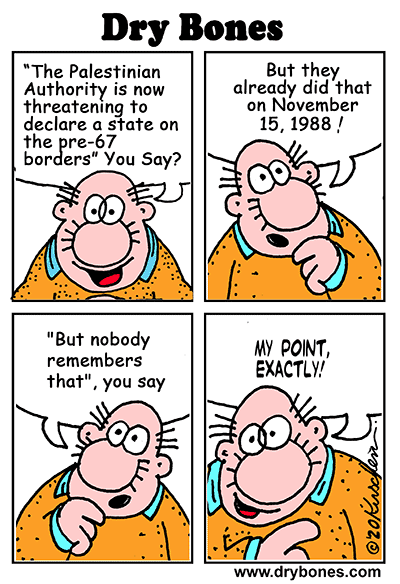Terror victim's family sues Palestinian Authority for NIS 100 million
The family of 13-year-old Hallel Ariel, killed in a violent terror attack in 2016, is suing the Palestinian Authority for NIS 100 million.
Since the incident of the terror attack, Hallel's parents, Rina and Amichai Ariel, have been involved in inter-state legal battles against the Palestinian Authority (PA). The NIS 100 million is the same amount the PA is paying the terrorist's family, in the form of monthly payments, for having carried out the attacks, and is the basis of the Ariel family's legal pursuit.
Prior to Hallel's murder, the terrorist who carried out the attack, Muhammad Tarayrah, 17 at the time of the incident, shared multiple posts on Facebook in which he praised terror attacks and stated his intentions to be a martyr. Carrying out his intentions, the terrorist infiltrated the West Bank Settlement of Kiryat Araba, located next to Hebron, snuck into Hallel's bedroom and stabbed her multiple times.
Following the attack the PA has paid the terrorist's family a monthly amount of NIS 12,000, according to Shurat HaDin, the legal body helping the Ariel family with their case.
Hallel was a dancer, and had performed in Jerusalem the night before the incident. Her family had allowed her to sleep in while they left to carry out the day's activities. Tarayrah had managed to infiltrate the settlement, and though alarms were set off, managed to sneak into the girl's bedroom, stabbing her to death, before the settlement's security team, of which her father was a part of, captured the terrorist, shot and killed him.
Lawsuit Alleges Qatar Secretly Financed Terror Attacks that Killed Americans
Qatar secretly provided funding for several terror attacks that killed Americans and Israelis, according to allegations leveled in an unprecedented new lawsuit filed in New York City on Wednesday that seeks compensation for the families of those killed.JPost Editorial: The Palestinian Authority's intransigence in the face of annexation
Multiple Qatari financial institutions, largely controlled by the country’s ruling monarch, provided millions of dollars to Hamas and Palestinian Islamic Jihad (PIJ), two U.S.-designated terrorist organizations that waged multiple successful attacks on American citizens, according to a copy of the lawsuit obtained by the Washington Free Beacon. As part of this alleged funding scheme, Qatari charities allegedly used the U.S. banking system to illegally funnel these groups the money necessary to orchestrate and conduct the attacks.
As Hamas’s most prolific funder, "Qatar coopted several institutions that it dominates and controls to funnel coveted U.S. dollars (the chosen currency of Middle East terrorist networks) to Hamas and PIJ under the false guise of charitable donations," according to the lawsuit, which was filed under the U.S. Anti-Terrorism Act and has been in the works for the last two years.
Revelations of Qatar’s alleged involvement in these terror plots is likely to fuel ongoing congressional investigations into Qatar’s support for terror factions and other anti-U.S. militia groups. Qatar’s involvement with these groups has also been a source of tension with its regional neighbors, including Saudi Arabia, Bahrain, and Egypt—all of which cut ties with the regime in 2017 due to its support for terrorism.
The lawsuit was filed by American attorney Steven Perles, who has prosecuted several notable terrorism cases filed on behalf of the families and victims of these terror attacks. The current case includes among its plaintiffs the family of Taylor Force, an American military veteran killed by Hamas in 2016.
"In addition to holding those who have financed terrorism accountable, this case should serve as a strong deterrent to others who might consider similar activities," Perles told the Free Beacon.
Palestinian Authority Prime Minister Mohammad Shtayyeh was firm in his resolve on Tuesday. Speaking to members of the Foreign Press Association in Ramallah in an effort to disseminate the Palestinian point of view to the world on Israel’s upcoming plans to declare sovereignty over undisclosed areas of the West Bank, he announced that “annexation is the erosion of a future Palestinian state,” and called Israeli annexation “an existential threat to our future.”International Law and Israeli Sovereignty in Judea and Samaria
It’s the same, predictable message that the Palestinians have been parroting since the concept of a unilateral annexation by Israel emerged with the publication of the Trump peace plan in January, which followed years of protracted stasis between Israel and the PA surrounding a negotiated settlement to the disputed territories that have been in Israel’s hands since 1967.
His statements came days after crowds of Israelis and Palestinians gathered in Tel Aviv and Ramallah, respectively, to rally against the Israeli plans, which could vary anywhere from annexing large settlement blocs in Area C like Ma’aleh Adumim and Gush Etzion or strategic areas like the Jordan Valley, to a more sweeping annexation of all settlements and surrounding areas in the West Bank.
Many of those who gathered in Tel Aviv were likely not demonstrating against the national consensus that those heavy Jewish population areas of Area C will become part of Israel in a negotiated deal on two states with the Palestinians – they were protesting the unilateral aspect of the prospective move, which will create facts on the ground, create a stateless category for thousands of Palestinians surrounding those annexed areas and make the already remote likelihood that Israel and the PA can come to terms over a two-state solution that much more difficult.
However, the Palestinian protesters and the government in Ramallah aren’t concerning themselves with nuances and terms like “unilateral” or “negotiated.” There has never been a serious indication from the Palestinian side that it is willing to accept anything beyond a return to the pre-1967 war lines, meaning the nonstarter premise for Israel of dismantling dozens of cities, towns and settlements and relocating hundreds of thousands of Israelis.
The Palestinians’ insistence at choosing to ignore the last 53 years of reality, which for better or worse, has seen massive Israeli settlement in the disputed areas that it won in the Six Day War, is the crux of the problem that the region faces and which has led to the unfortunate scenario of unilateral annexation.
There has been a cascade of dire warnings about the consequences should Israel's elected government follow through on Prime Minister Netanyahu's campaign promise to apply Israeli law in parts of Judea and Samaria.
The Jewish people are the only people in fact who have a recognized legal right over Judea and Samaria. This was enshrined in the mandate drafted and approved by 51 members of the League of Nations guaranteeing the "right of Jewish people to reconstitute their national home" in the Land of Israel (1922). Judea and Samaria have never been under the sovereignty of any other country than the State of Israel. Jordan's invasion of the territory in 1948 and its attempt to annex it in 1950 was widely opposed internationally.
The prohibition against the forcible transfer of civilians to territory of an occupied state under the Fourth Geneva Convention has no relevance. It was never intended to relate to circumstances of voluntary Jewish settlement on legitimately acquired land which did not belong to a previous lawful sovereign and which was designated as part of the Jewish state under the League of Nations Mandate.





























